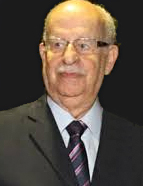

As a historian, Falcon adopted the influence of the École des Annales and focused on economic and political history. However, he did not embrace the fashionable approach to history that characterised Brazilian (and also Portuguese) historiography at a certain period. Nor did he subscribe to a theoreticist methodology — "theoretical engineering," as it was once called — that shaped much of the discipline at the time. It can be said that Falcon was always a historian for whom sources were of fundamental importance, without ever neglecting the theories that could enrich them.
His relations with historians at the University of Coimbra, covering all historical periods, were constant. He attended numerous conferences, notably one held in 1999 to mark the third centenary of the birth of the Marquis of Pombal, organised by Ana Cristina Araújo in Pombal and Oeiras . His connections with the university led him to collaborate actively with the Revista de História das Ideias [Journal of the History of Ideas] and, following the establishment of the Centro de Estudos Interdisciplinares do Século XX [Centre for Interdisciplinary Studies of the 20th Century] (CEIS20) in 1998, with both the research unit and its journal, Estudos do Século XX [20th Century Studies].
Falcon’s works on Pombalism are considered among the most significant, not only in books but also in many journals and conference proceedings. He examined Pombalism in its political and ideological expressions, as well as its mercantilist economic perspective, which aimed at modernisation — albeit historically out of sync. He also explored its pedagogical and philosophical aspects and its administration, particularly concerning the so-called "Overseas" territories. In this context, he sought to understand the Enlightenment and Portuguese Enlightened Absolutism, particularly with respect to the Brazilian case. Regarding Portugal, Falcon also focused on the history of historiography, especially through his work since the 1980s and the aforementioned research project. He engaged with the historiography of his time, both Brazilian and Portuguese, giving particular attention to the historiography of Pombalism .
This work is financed by national funds through FCT - Foundation for Science and Technology, I.P, in the scope of the projects UIDB/04311/2020 and UIDP/04311/2020.
